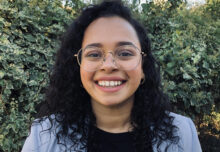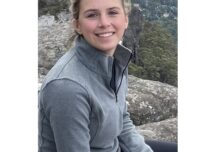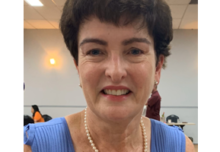
1. What is your background (profession/ workplace/ training)?
I’m just about to finish my first term as an intern at Monash Health.
2. What inspired you to become a Water Well volunteer?
At the time I joined, I was developing a particular interest in the social justice issues surrounding asylum seekers and refugees. My parents themselves came to Australia as refugees from Vietnam in the 1980s, and the increasingly harsh policies that Australia have adopted towards asylum seekers over the past decade have essentially spurred me to do what I can to help this vulnerable population. The Water Well Project was a particularly attractive program in that it let me combine my passion for refugee advocacy and my medical training, and I’m honoured to have started volunteering fairly early on in the Water Well Project’s infancy and watched it grow from strength to strength.
3. Please share one of your favourite Water Well sessions or moments.
I took a session on mental health as part of the Leading Women’s Health and Safety (LWHS) Project at the multicultural hub in Preston in 2014. I was with about 10-15 other women from a variety of different backgrounds and cultures, packed into a small room where half of the group were sitting on tables (including myself), the others on the few chairs available, or standing at the back. Despite the somewhat cramped quarters (or perhaps aided by our physical coziness), we ended up having an amazing, conversation about mental health and mental illness; there was the thrill of taking a session completely on my own, and the respect I felt for the women in the room as they shared their own experiences’ of their own, or their family members or friends’ mental illness, in what they evidently felt was a safe space. I left feeling like the session, rather than being didactic and information-overloaded, was a real bonding and empowering experience for the women involved.
4. What tips do you have for new volunteers?
Mostly, to not be afraid! Even now, I still feel a little nervous before sessions, and my anxiety revolves mostly around whether I know enough about the topic, and whether I’ll get difficult questions that I won’t know the answer to. However, I’ve always found that you generally know more than enough for the session, and the groups you’ll speak to will listen respectfully, and will be forgiving if you can’t specifically or eloquently answer a question (in the above scenario, I remember having a lot of difficulty explaining what schizophrenia was in layman’s terms!). Don’t be afraid to put your hand up for potentially challenging sessions (sexual health, mental health etc.) as you’ll learn and grow the most from them. Also, remember to SMILE during your sessions – they’re not designed to be serious, even if the topics themselves are! Being casual and friendly from the beginning of the session will encourage those involved to participate and ask questions.




